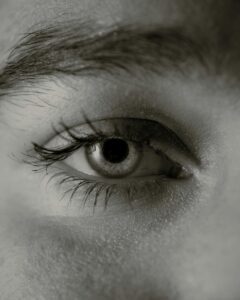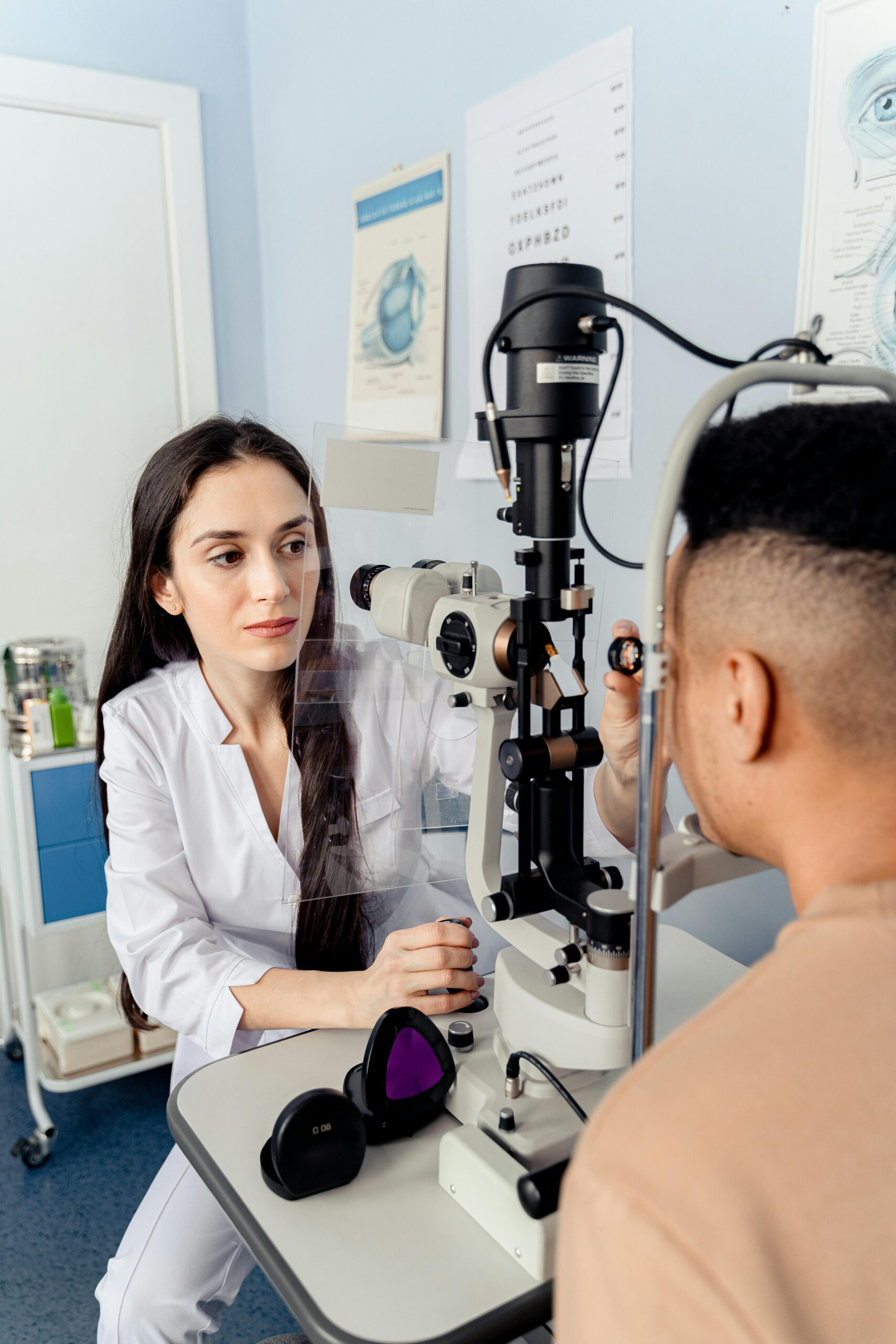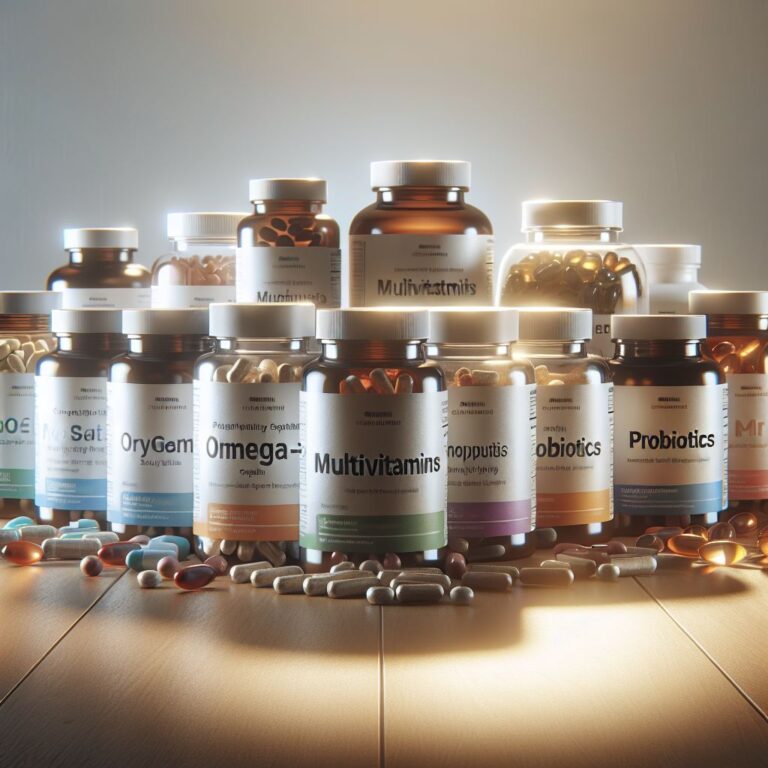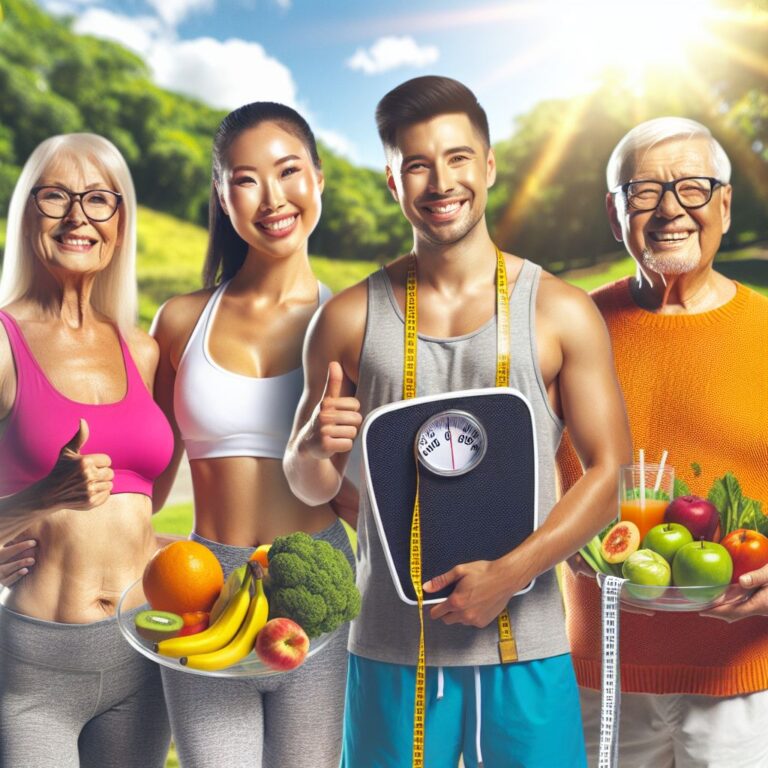Key Takeaways
- Eating foods rich in vitamins A and C, like carrots and oranges, can promote eye health improvement.
- Rest your eyes every 20 minutes when using screens to prevent strain.
- Simple eye exercises can strengthen your eye muscles and improve vision.
- Use blue light filters on devices to reduce eye fatigue.
- Regular eye exams are crucial for maintaining good eye health and catching problems early.
Hey there! If you’re looking to sharpen your sight and keep your eyes in tip-top shape, you’ve come to the right place. Let’s jump right into the world of vision improvement techniques and tips that you can start using today. And trust me, it’s not just about eating carrots (although they are pretty great for your eyes).
Unlock Your Vision’s Full Potential
 First things first, let’s talk about the power of nutrients. Your eyes are complex organs that need a variety of vitamins and minerals to function at their best. It’s like a supercharged smoothie for your sight. So, what should you be munching on?
First things first, let’s talk about the power of nutrients. Your eyes are complex organs that need a variety of vitamins and minerals to function at their best. It’s like a supercharged smoothie for your sight. So, what should you be munching on?
Essential Nutrients for Peak Eye Performance
You’ll want to stock up on foods high in vitamin A, such as sweet potatoes, spinach, and, of course, carrots. Vitamin A is like the superhero of eye health, helping you see better in low light and keeping your eyes’ surfaces healthy. Besides that, vitamin C is another powerhouse for your peepers, found in citrus fruits, strawberries, and bell peppers. It helps form and maintain the connective tissue in your eyes, including collagen found in the cornea.
Most importantly, don’t forget omega-3 fatty acids from fish like salmon and nuts like walnuts. They’re like the oil that keeps the engine of your eyes running smoothly, supporting retinal health and fighting off age-related vision problems. And, for the grand finale, antioxidants like lutein and zeaxanthin—found in leafy greens and eggs—act as natural sunglasses, protecting your eyes from harmful light.
Optimal Lighting for Eye Health
Now, let’s shed some light on, well, lighting. The right lighting can make a huge difference in how your eyes feel at the end of the day. You want to aim for a Goldilocks situation—not too bright and not too dim. Natural light is best, but when you’re stuck indoors, make sure your workspace is well-lit with bulbs that mimic daylight. And if you’re reading a book or working on a project, use a task light to direct light exactly where you need it.
Glare on screens can be a real pain, both literally and figuratively. Position your computer monitor so windows are to the side, rather than in front or behind, and consider an anti-glare screen if needed. It’s all about creating an environment where your eyes can work without extra strain.
Dietary Changes for Lasting Vision Improvement
Now that you’ve got your lighting sorted, let’s talk food. Your diet has a massive impact on your eye health, and making some smart swaps can lead to clearer vision down the road.
Top Foods to Boost Your Eye Health
Here’s a quick grocery list to get you started on maintaining good eyesight:
- Leafy greens like spinach and kale – They’re packed with lutein and zeaxanthin.
- Berries and citrus fruits – These are bursting with vitamin C.
- Eggs – They provide a bit of everything, including omega-3s, lutein, and vitamin E.
- Almonds – Full of vitamin E, which helps protect your eyes from free radicals.
- Fatty fish – Salmon, mackerel, and sardines are high in omega-3s.
By incorporating these foods into your diet, you’re setting the stage for strong vision for years to come. Think of it as feeding your eyes the nutrients they need to see the world clearly.
Supplements for Enhanced Visual Clarity
But what if you’re not getting enough of these nutrients from your diet alone? That’s where supplements come into play. They can fill in the gaps and ensure your eyes are getting all the good stuff they need. Just remember, it’s always best to consult with a healthcare provider before starting any new supplement regimen.
And here’s a pro tip: when shopping for supplements, look for ones that have been third-party tested for quality and purity. This way, you know you’re getting exactly what the label says, without any unwanted extras.
Mastering Eye Exercises for Stronger Vision
Let’s move on to some action—eye exercises. Just like the rest of your body, your eyes need a workout to stay in shape. These exercises won’t give you superhuman vision, but they can help reduce eye strain and improve focus.
Strengthening Techniques for Your Eye Muscles
Here are a few to try:
- Blinking – It sounds simple, but blinking frequently helps refresh your eyes and prevents dryness.
- Palming – Rub your hands together to generate warmth, then gently cup them over your closed eyes without pressing. This can help relax your eye muscles.
- Focus shifting – Hold a pen at arm’s length, focus on it, and slowly bring it closer until it’s about six inches away from your nose. Then, slowly move it back out. This helps with focusing flexibility.
These exercises are like a mini gym session for your eyes. Do them regularly, and you’ll notice less fatigue, especially if you spend a lot of time in front of screens.
Accommodation Flexibility Drills
Accommodation is the ability of your eyes to switch focus between objects at different distances quickly. To train this, switch your focus from something close to you to something far away, back and forth. It’s like high-intensity interval training, but for your eyes!
Remember, the key to these exercises is consistency. Just like you wouldn’t expect to run a marathon without regular training, don’t expect instant results with your vision. Keep at it, and you’ll see the benefits.
Technology is a huge part of our lives, but it doesn’t have to be a pain in the eye. There are some pretty nifty tools and tweaks you can use to make sure your digital life isn’t blurring your real-life vision.
Technological Aids and Modifications for Better Eyesight
Let’s talk screens. We all spend hours staring at them, whether it’s for work or fun. But did you know there are ways to make them easier on your eyes?
Blue Light Filters and Their Impact on Vision
Blue light from screens can mess with your sleep and make your eyes feel like they’ve run a marathon. That’s where blue light filters come in. They’re like sunglasses for your devices, cutting down on the blue light that gets to your eyes. You can find these filters built into many devices or as separate screen protectors.
Adjusting Screens for Reduced Eye Strain
Here’s a quick fix: adjust the brightness and contrast on your screen to match the lighting in your room. And bump up that text size—squinting is not a good look, and it’s even worse for your eyes. Most importantly, make sure your screen is at eye level so you’re not looking up or down at an angle. This keeps your posture in check and your eyes at their best.
Lifestyle Adjustments for Long-Term Eye Care
Good vision isn’t just about what you do for your eyes but also how you live your life. Small changes can make a big difference. Learn more about probiotic vitamins for digestive support, as gut health can impact your overall wellbeing, including your eyes.
Importance of Regular Eye Rest and the 20-20-20 Rule
Ever heard of the 20-20-20 rule? Every 20 minutes, take a 20-second break to look at something 20 feet away. It’s like a reset button for your eyes, giving them a chance to chill out for a sec.
Quit Habits That Harm Your Eyesight
Smoking’s bad news for your eyes, just like it is for the rest of you. It can lead to all sorts of nasty eye conditions. So if you’re looking for one more reason to quit, think of your sight. And while you’re at it, watch out for dry air from air conditioning or heating—it can dry out your eyes. Try using a humidifier to keep the moisture in the air and your eyes comfortable.
Exploring Professional Eye Care Options
Sometimes, you need to call in the pros, and that’s okay. Your eyes are worth it. For more detailed strategies on maintaining good eyesight, consider reading these 6 tips for eye health.
When to Consider Prescription Glasses or Contact Lenses
If you’re squinting at this text or anything else in your life, it might be time for glasses or contacts. There’s no shame in it—tons of people use them, and they can make a world of difference. The right prescription can turn a blurry world sharp again.
Understanding the Benefits of Regular Eye Exams
Even if you think you’re the eagle-eyed champion of the world, regular eye exams are key. They’re not just about figuring out if you need glasses—they can also catch eye issues before they become big problems. It’s like taking your car in for an oil change to keep everything running smoothly.
Option A.
Option A. There is no relevant link to include in the content below.
Protecting Your Eyes from UV Rays
UV rays are no joke. Sunglasses with UV protection are a must, even on cloudy days. Think of them as sunscreen for your eyes. And just like sunscreen, don’t skimp on quality. Your eyes deserve the best.
Preventing Eye Issues Caused by Pollution
Pollution is everywhere, and it’s not just bad for your lungs. Your eyes can get irritated by all that dust and smog, too. If you live in a big city or an area with poor air quality, make sure you’re giving your eyes a break. Use lubricating eye drops if they feel dry or gritty, and always wash your hands before touching your eyes to avoid transferring any nasties.
So, there you have it—simple, effective ways to keep your vision clear and your eyes healthy. Whether it’s changing your diet, tweaking your tech, or just remembering to rest your eyes, every little bit helps. And remember, if you’re curious about that “7 Second Ritual” to restore 20/20 vision, you can Watch Now to learn more about this groundbreaking technique. Your eyes will thank you!
Alright, let’s dive deeper into how you can protect your eyes, especially if you’re someone who loves sports or works in a risky environment where eye injuries are a concern. Remember, prevention is better than cure, and it starts with the right gear.
Eye Protection in Sports and Hazardous Work
Whether you’re hitting a fastball, cycling down a mountain trail, or grinding metal in a workshop, your eyes are at risk. High-speed particles and blunt impacts can do serious damage, and that’s why proper eye protection is a game-changer.
Choosing the Right Protective Eyewear
When it comes to protective eyewear, one size does not fit all. Different activities require different types of protection. For example, if you’re playing racquetball, look for goggles that can handle a ball traveling at high speeds. For work that involves chemicals or flying debris, make sure your safety glasses have side shields or wrap-around protection. Always check that your eyewear meets the safety standards for your specific activity.
Preventing Accidental Eye Injuries
Besides wearing the right gear, being aware of your environment is key to preventing eye injuries. That means being mindful of potential hazards and keeping your work area clean and well-organized. And don’t forget about emergency procedures—knowing what to do in case of an eye injury can save your vision.
Revolutionize Your Eye Health
Now, let’s talk about a revolutionary approach to eye health that’s been gaining attention. An eye specialist has come forward with a “7 Second Ritual” that claims to restore perfect 20/20 vision. It’s based on scientific research and natural methods to enhance eye health.
Eye Specialist Unveils “7 Second Ritual” for 20/20 Vision
This groundbreaking technique involves simple steps that can be done anywhere, at any time, to potentially improve your vision. It’s been featured in various scientific references and has shown promising results. If you’re curious about how this could work for you, Watch Now to discover more about this unique method.
Scientific Discoveries Behind Natural Eye Health
Research into natural compounds like Astaxanthin and Zeaxanthin has shown that these antioxidants play a crucial role in protecting the eyes from oxidative stress and high-energy light. They’re found in foods like salmon, shrimp, and leafy greens, and are essential for maintaining eye health.
FAQ
Got questions? I’ve got answers. Let’s clear up some common queries about eye health.
What Are the Best Foods for Eye Health?
Foods rich in vitamins A, C, E, and minerals like Zinc are fantastic for eye health. Think carrots, oranges, leafy greens, and nuts. They help protect against age-related eye issues and keep your vision sharp.
How Often Should I Do Eye Exercises?
Daily eye exercises are ideal. Just like physical exercise, consistency is key. Even just a few minutes a day can make a difference in reducing eye strain and improving focus.
Can Blue Light from Screens Really Damage My Eyes?
While the research is still evolving, excessive exposure to blue light from screens could lead to eye strain and disrupt your sleep cycle. Using blue light filters or taking regular breaks from screens can help minimize potential harm.
Is It Necessary to Wear Sunglasses Even on Cloudy Days?
Absolutely! UV rays can penetrate clouds, so protecting your eyes with sunglasses that offer 100% UV protection is important regardless of the weather.
What Should I Do If I Experience Persistent Eye Strain?
If eye strain is a constant issue, it’s time to visit an eye care professional. They can assess your situation and provide personalized advice, whether it’s adjusting your screen habits, getting the right prescription, or suggesting ergonomic improvements.
So there you have it, a comprehensive guide to keeping your eyes healthy and your vision clear. Remember, taking care of your eyes is a daily commitment, and incorporating these strategies into your lifestyle can lead to significant improvements. And if you’re intrigued by the “7 Second Ritual” to potentially restore 20/20 vision, don’t hesitate to Watch Now and learn more about this innovative approach. Additionally, understanding the impact of ear ringing sound effects can further contribute to your overall sensory health. Here’s to your eye health!






